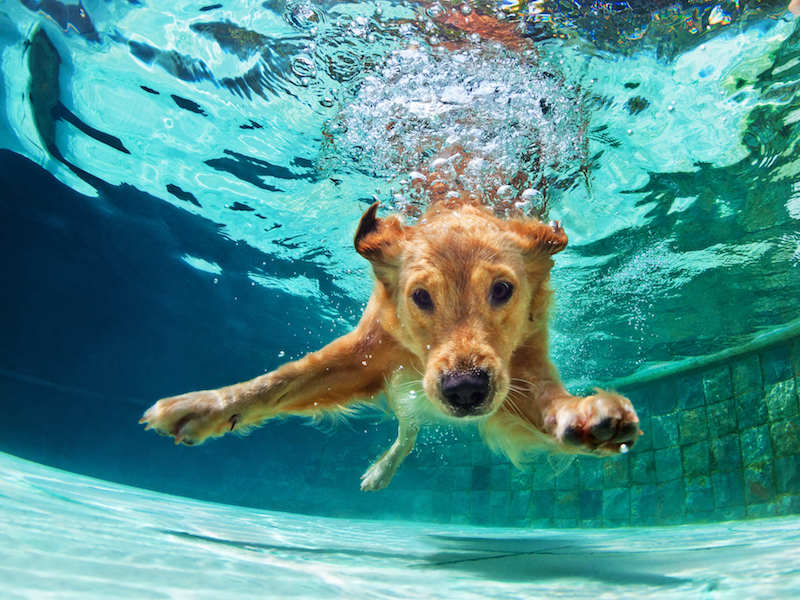
There are a lot of different things that can harm the delicate that makes a hearing aid function the way it does, but not many have the impact of water. In fact, you could call moisture kryptonite for hearing aids. Taking that into consideration, humidity is a big problem.
Moisture that you can’t see has the greatest chance of causing permanent damage. It’s important to educate yourself about why humidity harms hearing aids.
Understanding Humidity
Humidity is a word that gets talked about a lot, especially during the summer months, but what does it mean? PBS describes humidity as water molecules in the air. When displayed as a percentage, for example, the relative humidity is 40 percent today, it refers to the amount of water vapor in the air compared to what air could hold. When you can feel wetness in the air, that means the relative humidity is high.
Human beings are very sensitive to humidity because sweat is the most effective way to cool down the body. When you sweat it evaporates into the air, but that doesn’t happen as fast when the humidity level is very high. Moisture and electronics don’t mix well and that includes hearing aids.
Typically Electronics Have a Hard Time Dealing With Humidity
Strangely enough, electronics are not only sensitive to high humidity but low levels as well. When it’s too damp, the intricate electronics will collect condensation. When it’s too dry things become more brittle.
Hearing aids rely heavily on internal electronics to function. Newer digital hearing aids use a sophisticated audio processing chip to manage noise. It’s what is behind elegant functions like:
- Noise reduction
- Anti-feedback
- Targeted listening programs
- Digital sound streaming
High humidity causes moisture to accumulate inside the hearing aids destroying that chip. Batteries get destroyed and you get corrosion of elements inside of the case. You might as well drop your hearing aid in a tub full of water, and the effect is the same.
Controlling Humidity
If you are investing in hearing aids, look for products that are water-resistant. This feature will give you some protection from humidity and bad weather, but you still can’t swim with them in.
If you live in a humid area, consider getting a room or house dehumidifier to minimize water vapor indoors. It’s not just your hearing aid that will benefit, there are health benefits, and other electronic devices in your house will also be protected. Dust mites, mildew, and mold thrive in moist environments so a dehumidifier will improve the quality of breathing as well. However, protecting your hearing aid more completely will require additional thinking. There are a few other things you can and should do.
Consider buying a dehumidifier designed especially for hearing aids. There is one out there for every budget. Silica gel crystals in a drying kit are used to protect electronics. You put the device in the dehumidifier for a couple of hours to eliminate moisture. Drying your hearing aids as you sleep at night can be done using specially designed storage containers. In a pinch, you could use a bag of uncooked rice to remove moisture.
Don’t forget to leave the battery door open when you store your device. By pulling that door open before you put the hearing aid down, you expose the batteries and other elements to the air, allowing any condensation built up to evaporate naturally. Do this all year round, not just in the summer months.
A cool dry place is the ideal for storage. On the table in the sun, in the glove compartment, or in a hot room are examples of where not to store your hearing aids.
Thinking Beyond Humidity
Damage can be caused by other types of wetness. Don’t forget to think about other types of wetness like:
- Make sure all lotion or sunscreen is fully absorbed before touching your hearing aids or putting them in your ears.
- Leave your hearing aids in a safe place before you go swimming.
- Wear a sweatband when exercising. If you are wearing your hearing aid then it’s a good idea in general. Sweat in your ears can cause problems later.
- Check surfaces before you put your hearing aid down. You don’t want to place it in a wet spot left by a glass or coffee cup.
Treat your hearing like the valuable asset that it is. Keep in mind how moisture can damage your hearing aids and make sure to prevent water from getting in them. If your hearing aid already has water damage make an appointment for service with a hearing aid specialist.
